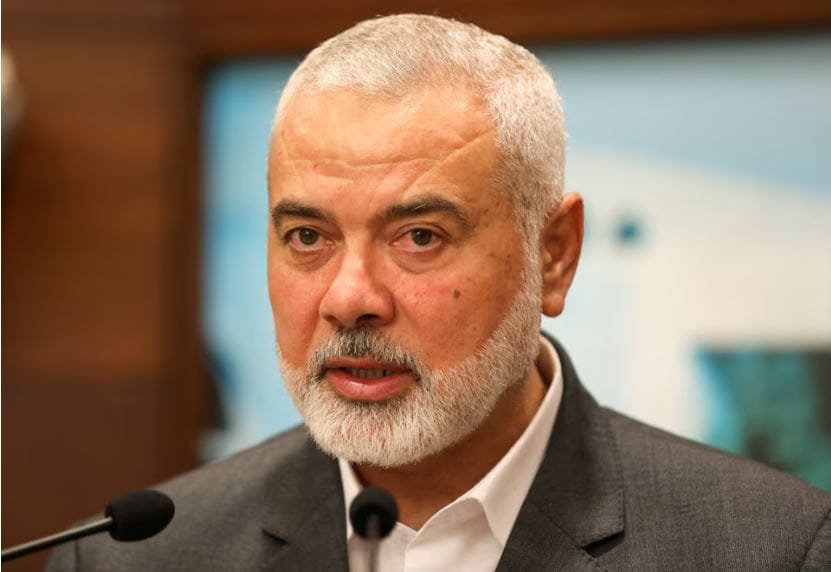Escalation Fears Rise as Hamas Vows Retaliation, Regional Tensions Flare
The targeted killing of Hamas leader Ismail Haniyeh in Tehran has sent shockwaves through the Middle East, prompting threats of retaliation against Israel and stoking fears of a wider regional conflict. The assassination occurred hours after Haniyeh attended the inauguration of Iran’s new president, further fueling speculation of Israeli involvement.
Hamas and Iran Confirm Haniyeh’s Death, Israel Remains Silent
Both Hamas and Iran’s Revolutionary Guards confirmed Haniyeh’s demise, with Iran declaring three days of national mourning and blaming the United States for its support of Israel. While the Israeli government has declined to comment, the assassination has been widely attributed to Israel, raising questions about the future of the ongoing conflict in Gaza and the potential for further escalation.
Assassination Threatens Fragile Ceasefire Negotiations
Haniyeh, based in Qatar, had been a prominent figure in Hamas’ international diplomacy and was actively involved in internationally-brokered ceasefire talks. His assassination, coming on the heels of Israel’s claim to have killed a Hezbollah commander in Beirut, casts a shadow over the prospects of a swift resolution to the devastating conflict in Gaza.
Global Condemnation and Calls for Restraint
The international community has widely condemned Haniyeh’s assassination, with Qatar, Egypt, China, Russia, Turkey, and Iraq expressing their disapproval. Concerns have been raised about the impact of this act on ongoing ceasefire negotiations and the potential for further civilian casualties.
Regional Tensions Escalate as Fear of Retaliation Grows
As Hamas vows to retaliate and Iran threatens “harsh punishment” for Israel, the region braces for potential repercussions. While the Israeli government maintains its commitment to ceasefire negotiations and the release of hostages, the situation remains volatile, with the risk of a wider conflict looming large.
Key Takeaways and Potential Ramifications
| Key Learning Points | Potential Ramifications |
|---|---|
| Targeted assassination of Hamas leader disrupts peace efforts. | Ceasefire negotiations may stall, prolonging the conflict. |
| Regional tensions escalate, with threats of retaliation. | Increased risk of wider conflict involving Iran and Hezbollah. |
| International community condemns the assassination. | Pressure on Israel to de-escalate and engage in peaceful dialogue. |
| Humanitarian crisis in Gaza worsens. | Increased suffering and displacement of civilians. |
| Uncertainty looms over the future of the conflict. | Potential for further violence and instability in the region. |
The assassination of Ismail Haniyeh marks a critical juncture in the ongoing conflict between Israel and Hamas. As regional tensions rise and the prospect of a wider war looms, the international community faces the daunting task of de-escalating the situation and finding a path towards a lasting peace.
Soumya Smruti Sahoo is a seasoned journalist with extensive experience in both international and Indian news writing. With a sharp analytical mind and a dedication to uncovering the truth, Soumya has built a reputation for delivering in-depth, well-researched articles that provide readers with a clear understanding of complex global and domestic issues. Her work reflects a deep commitment to journalistic integrity, making her a trusted source for accurate and insightful news coverage.



